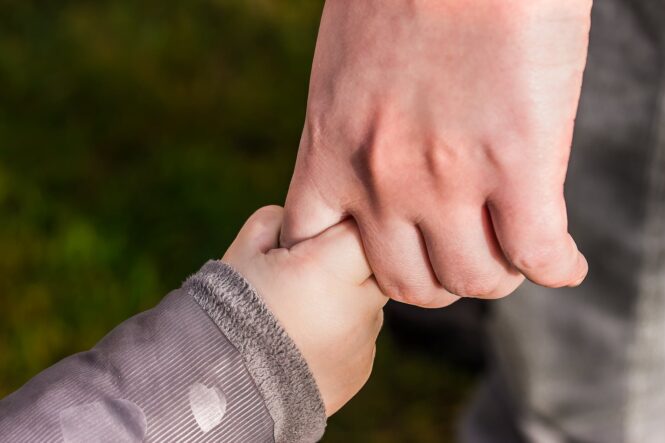Going through a divorce is a difficult process. Not only do you need to deal with the emotional stress that comes with it, but it is a complete change to your daily way of life. One of the hardest parts of a divorce is figuring out your finances. Many financial decisions need to be made around this time, and this isn’t easy to do when you’re already stressed and emotional. Here are some tips you can use for handling your finances during a divorce.
Court and Lawyer Fees
The first thing you should think about is any court and lawyer fees that you need to pay. Most people, when going through a divorce, will retain the services of a lawyer. A divorce lawyer will help to ensure that the split is equitable for their client and handle all the necessary paperwork that flows from a divorce. However, these lawyers do not work for free. You should have a solid understanding of what you need to pay your lawyer, preferably before you retain their services, to ensure that you can afford it.
Along these seem lines, you should also look into any court fees you may need to pay. Going through a divorce sometimes means going to court, and there are costs associated with this. Your lawyer can help you to understand any court fees that you might need to pay. It’s a good idea to figure out your lawyer and court fees first because they are often the simplest.
Alimony and Estate Planning

Next, depending on the terms of your divorce, you may receive, or need to pay, alimony. Alimony is a court-ordered payment that you need to pay to your former partner. This is often done when one partner makes less money than the other, or if they make no money at all. The amount of alimony you will receive or have to pay depends on several factors, such as how long the marriage lasted and what your future income looks like. This amount will typically be set during your divorce dispute resolution.
It’s a good idea to get a handle on alimony payments early because they will be a fixed part of your financial situation going forward. The court will take your income into account when determining the amount of alimony that needs to be paid, so hopefully, it will be within your financial means to pay it if it’s required of you.
Alimony ends for several reasons, such as reaching a specific date set by the judge, the receiving partner re-marries, death, or retirement. Your lawyer will be able to explain to you your alimony obligations in more detail.
With you being divorced and alimony in your books, you will need to be careful when you are choosing your new home. Buying or renting a new place can be more difficult than usual and therefore, you need to consult with professionals so that your financial situation doesn’t become unbearable and you go broke. OneWill offers estate planning services and they will help you choose a new home suitable to your needs.
Child Support

If there are children involved with your divorce, child support payments may be issued to one spouse. Child support payments are payments that one partner makes to the other to help care for the children, who are now primarily in their custody. For example, if the children are going to be living with their mother most of the time, the father may pay child support payments to help provide for them.
The amount of child support due will depend on income levels and the number of children. There are significant penalties for failing to pay child support, so if this is your obligation, you will want to make sure they are a top priority when figuring out your financial situation.
In most states, child support payments end when the child reaches the age of 18. Some states extend this age limit a little further, while others may also include graduating high school as a requirement.
Claiming a Child as a Dependent

Divorce will also impact your tax filings each year, so you may want to consult with a tax expert before your next filing. For example, you will want to know if you can claim your child as a dependent, or if your spouse should do so. Only one spouse can claim the child as a dependent, and it’s typically whomever the child lives with for more than half the time. If the child spends equal time at both homes, there are other factors you will need to consider.
It’s important to discuss with your former partner who will claim the child as a dependent so that you do not both claim them on your taxes. If this happens, only the person who files first will receive the tax benefit.
Paying Off Debts
A big part of many divorces is paying off the debts you both accrued during your marriage. For example, if you took out a loan to pay for a home improvement project, you will need a plan in place to pay it back. According to ljacobsonlaw.com, Julius & Harshberger, a Harrisburg divorce attorney, “a judge may order you to pay what he or she considers is your fair share. Debts that benefited a couple’s household such as credit cards, mortgages, and auto loans may require negotiation.” In consultation with your former partner, and any lawyers or mediators, come up with a debt payment plan that is fair to both sides.
Living on Less Income

Finally, you may now be facing a reality in which you are living on less income. Many homes have two incomes, but after a divorce, it’s just you. You will need to adjust your lifestyle accordingly to match your new income level, along with any payments associated with the divorce.
It’s a good idea to sit down as soon as possible and create a budget for yourself. See what you are bringing in each month and where your expenses lie. If you find that you are on track to spend more than you make, you will need to start scaling back. Some ways recently-divorced people do this is either by moving to a smaller place, cutting back on some luxuries like dining out, or selling possessions they no longer need.
It may be tough to adjust to your new financial situation at first, but it will get easier over time. Going through a divorce isn’t easy and the money involved doesn’t make it any easier. So, do yourself a favor and figure out how to handle your finances during a divorce now, so that you can focus more on your emotional well-being.
 Imagup General Magazine 2025
Imagup General Magazine 2025



